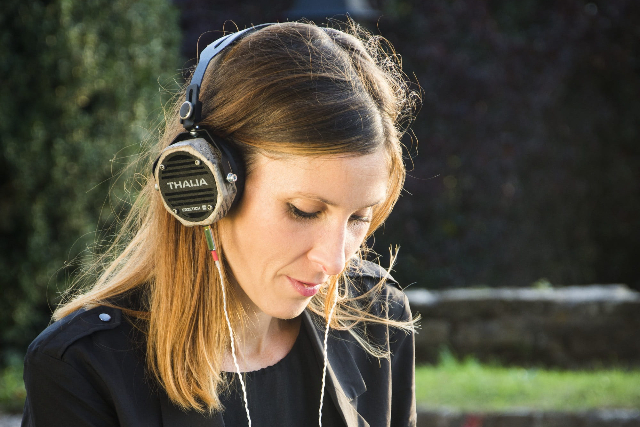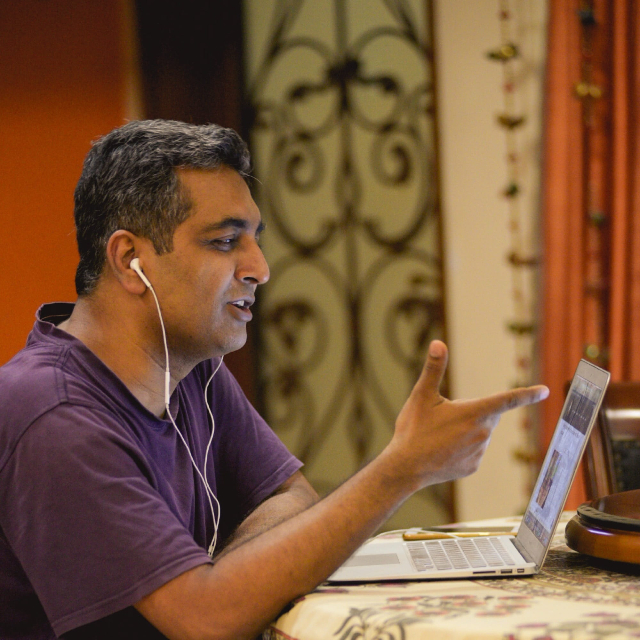Language learning at home is certainly a viable method of learning a new language. So long as you have the motivation and drive to do this mostly alone, you can make great progress in your learning. With the rise of information on the internet, learning languages just in classrooms or through language immersion in another country is not the only way of learning now.
Everybody knows that the most efficient way to learn a language is by immersion and living in the country. What if you’re not able to do that? Not everyone has the time or finances to travel to another country to spend a few months. Some languages have very few native speakers making this option even more difficult. There are many ways to learn a language while at home without ever setting foot in another country!
The basic premise of learning a language, if you are in another country or at home, is to immerse yourself as much as possible while actively practising vocabulary and learning grammatical concepts.
It’s important to remember that immersing yourself as much as possible will be the quickest way to learn, even at home.
This doesn’t just mean throwing yourself in the deep end because you won’t understand any of the words or grammar. Ideally, you would plan how you want to structure your learning so that you can still understand more complex sentences and words later on. This plan can change over time but having goals and clear steps are a great way to help make sure your learning is on track.

Research A Language You Want To Learn
You may want to learn a new language but you’re unsure which one to learn. There’s no limit to how many languages you can learn, but obviously, you want to pick one that works for you.
Language learning is about consistency and having the motivation and interest in your language cannot be understated.
Think about the motivations for learning the language. Will this motivation last in the long term for you? You may find during your language learning journey that your motivations and interests around the language change, but you will need something solid to start you off.
If you think you have found a language you want to learn, I would recommend checking out Duolingo to see if that language is available to learn. This site will start you off with the basics of the language and is pretty useful at giving a glimpse into what the language is like.
If you are learning a language with a new alphabet system, you may want to look in your local library or find online resources to help you practice and familiarise yourself with the new letters.

Continually Add To Your Own Vocabulary List
I know what you may be thinking – there are so many free vocabulary lists out there, why can’t I use one of those? The answer is that you can, however, the reason I suggest making your own is that part of the learning comes from making the list itself.
In the same way that writing notes at lectures and making notes while reading from a textbook helps you learn, making your own vocabulary list helps you learn the words right off the bat. It gives you an instant connection to the words you have added and may even lead you to find more words that you want to add, while you’re getting definitions of the first word.
What Kind Of Vocabulary List Should You Have?
This depends on how experienced you are in using flashcards. You could use mnemonics, such as only having a picture instead of the English word, or you could do a standard English word | Foreign word make-up.
I sometimes add audio to my flashcards when the words are tricky to pronounce, and if you want to do this, I would suggest Forvo as the place to go for this (free) – native speakers can pronounce a word that you can download and use.
There are many places you can create vocabulary lists, Anki or Memrise are both great examples of this. You’ll be able to look up pre-made vocabulary lists inside Memrise and download and add pre-made decks (vocab lists) in Anki as well.
I would recommend that you have a main vocab list of words that you regularly see and want to know. Perhaps another list of words you have seen less regularly but would also like to learn. This will mean that your main deck won’t be overwhelmed with ‘rare’ words and you’ll be spending your time, especially at the start, effectively.
Consistency is key to practising. Remember, people speak this language their whole life, you don’t need to learn it all in a day.
If small blocks of learning are all you can do each day, that’s great! The size doesn’t matter so much as the consistency and regularity.

Scaffold Your Reading In The Target Language
Knowing how to read is going to go a long way towards your language learning. It’s harder than just speaking because to properly read, you need to understand the grammar, words, sentence structure, and alphabet. If you can do this though, all of these skills transfer into speaking and help you speak in a grammatically correct way.
Depending on what you are wanting to get out of language learning, you may be specific things you want to read or listen to in that language. An example could be Anime, perhaps a particular book or movie. Before you can work up to understanding it, you will need to start with easier topics.
There is some research that supports that reading in a new language should be done in texts where you already know 95% of the words. This doesn’t mean it is impossible to read anything with more unknown words and should be seen as a guide than an actual rule to follow but it is important to keep this in mind.
It means you may feel like what you’re reading is well below your reading level.
It is very easy to reach too high when picking a book to read in your target language, especially in comparison to what you may read in your native language. This might mean that if your goal is to read the Harry Potter series (a great target that is common in almost any language), you may need to start with something a bit simpler first.
Don’t get discouraged if you find that the book you are reading is too difficult for you, try and find an easier book and when you feel like you are ready, go back to the first book and see if your reading skills have improved.
How To Practice Reading At Home
There is different advice on how to read in the new language. I would recommend finding a text that you want to read and is easy enough that you will understand most of the words. This is a text you will be reading several times over so make sure you’re happy to be rereading this text.
When you read it the first time, don’t stop and look up every word that you do not understand, just highlight those words, or write them in a separate list so that you can look them up later.
By not looking all up straight away words, it won’t take you an hour to finish one page of a book and will give you practice finding the meaning of words through context.
After this, look up the words on your list and create a new vocabulary list to practice. Once you’ve spent some time practising this vocabulary list, go back and reread that text. This will give you an idea of your improvement of vocabulary.
There are a few places online for finding books, one that I particularly enjoy is Project Gutenberg, which is mainly aimed at German, but does contain some other languages. Check your local library as they will probably have a foreign language section as well.
When in doubt, go to Wikipedia and look up articles in your target language, and have a read. There is sure to be a wide range of articles you can look at that will interest you.
How This Looked For Me
While I was learning German, I wanted to incorporate reading into my German learning. I thought I would start with something I know relatively well, which is Alice in Wonderland. Unfortunately what happened is that I discovered there were many words that I just did not understand, and remember my reading experience was not great.
I then changed books and read a book called Heidi. Although the book feels like it is written for young children, this is where my reading level was, at the time. I am now working my way through the Harry Potter series, which is accompanied by an audiobook in German as well. This means that my listening and reading skills are both being practised at the same time.
I would never have been able to read Harry Potter if that was the first book I started in German.
I found that having the audio as well as the text helped me focus on the overall gist of the story without getting hung up on individual words. This is currently my first read-through of Harry Potter and once I have completed all the books and spent some time practising the vocabulary I’ve added to a specific Harry Potter vocabulary list, I’ll be reading through all the books without audio to see how I go.

Practice Listening While At Home
A wonderful way to learn a new language is through music. Of course, this depends on the type of music that you like to listen to, and if there is music available for your target language. The reason music is so powerful is that you are able to pick up the pronunciation of different words, the flow of sentences as well as phrases that you can use in real life.
If you’re not sure what kind of music you’d like to listen to, check out Radio Garden and listen to different radio stations available in a country that speaks your target language.
In addition to music, try to listen to different forms of media in your chosen language so that you hear different people and different styles of speaking.
A good option for this is to listen to the news in your target language, even better if you can do this with video. This will mean that the information is always changing, but you will be able to listen to the news in your own language before switching to the new language. Don’t forget if you are watching anything online you usually can slow it down slightly if it is too fast for you.
The benefit of listening to something is that you can do this while doing something else. At the start of learning a new language, you should try to add words you haven’t heard before to your vocabulary list for later practice.

Practice Speaking While At Home
Speaking is probably the most difficult part of language learning to practice at home for obvious reasons. Unless you are living with somebody, or have a friend, who speaks the language, it may be difficult to practice speaking.
Thankfully there’s now a multitude of apps available where you’ll be able to speak to a native speaker of your target language. Obviously, this is not a free opportunity and prices can vary significantly depending on the qualifications of the person you’re speaking with.
The objective of these conversations is also up to you, and some people will offer only language practice, while others will offer full-scale lessons complete with grammar exercises and homework. The benefit here as well is that there is flexibility in the time of these lessons to suit you.
If you’re not wanting to spend money or you are a bit nervous about speaking to somebody that you may not know, have a look around your area to see if they are social groups of other learners of your target language. Of course, this would be the same as speaking to a native speaker, but you will at least have the chance to get used to saying foreign words.
As a final way of practising speaking, try finding songs that you can sing along to.

Practice Writing While At Home
This is perhaps the simplest type of practice that you can do at home, but in some ways, it is also quite difficult. You might sit down at the computer or perhaps with a pen and paper in your hand ready to start writing. You go to write the first word and your mind draws a blank.
What should you write about when you are practising writing?
The answer to this is anything at all! I know that’s not a useful answer that it is true. Firstly think about what you are writing for, is there specific grammar for all words that you want to practice? Is it general writing or is it writing in a specific context?
There are places on the internet for language learners to post what they’ve written in their target language, which may help you feel like you are writing a more authentic text. Otherwise, even your own diary will help. If you are learning a language with a new alphabet, try handwriting at least some of the time to get a feel for the language.
- Should Everyone In The World Speak A Universal Language?

- The Power of Immersing Yourself In A Language For Learning

- Start Your Language Learning Journey: Duolingo And Other Methods

- Does Learning A Language Help You Learn How Others Think

- Can You Learn a Language Without Learning Its Culture?

- Unlock Fluent Expression: Sentence Builders Across Languages

- Hidden Gems: Underrated Duolingo Languages Worth Learning

- The Ultimate German Pronunciation Guide

- Where To After Finishing Duolingo For Language Learning










